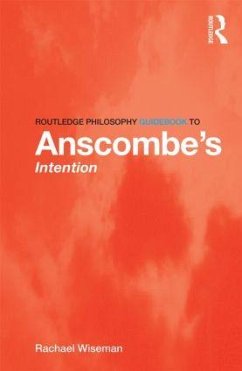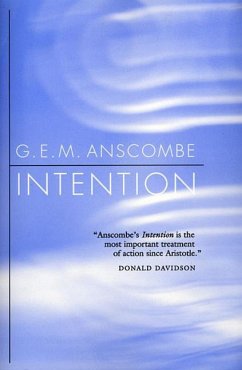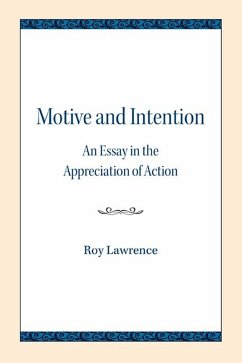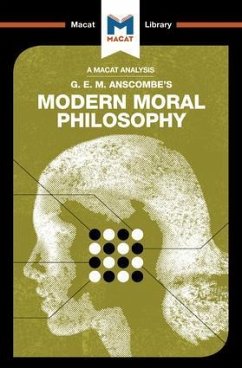
Anscombe's Intention
A Guide
Versandkostenfrei!
Versandfertig in 1-2 Wochen
37,99 €
inkl. MwSt.
Weitere Ausgaben:

PAYBACK Punkte
19 °P sammeln!
This book is a guide to Elizabeth Anscombe's Intention, which is one of the most important philosophical books of the 20th Century. The present work offers a careful and critical presentation of Anscombe's main lines of argument and emphasizes her debts to Aristotle, Aquinas, and Wittgenstein, and her engagement with the work of then-contemporary authors including Gilbert Ryle and R.M. Hare.














